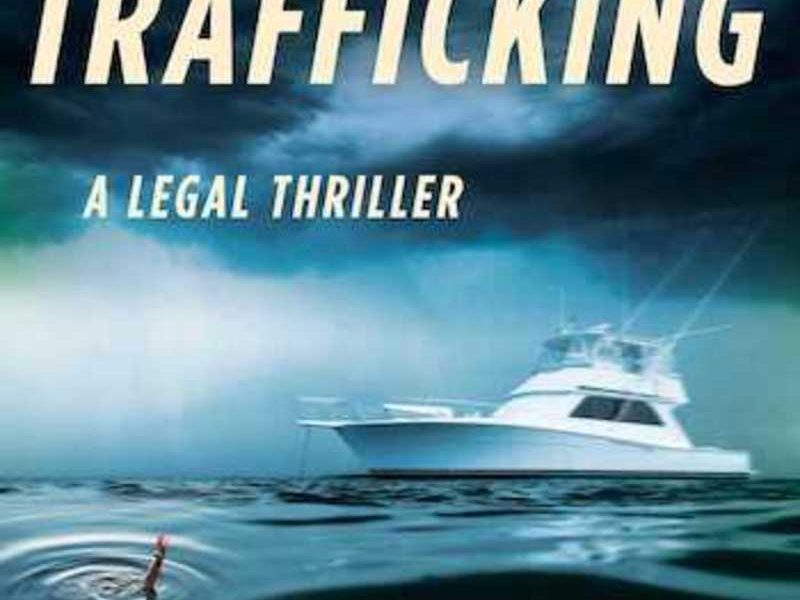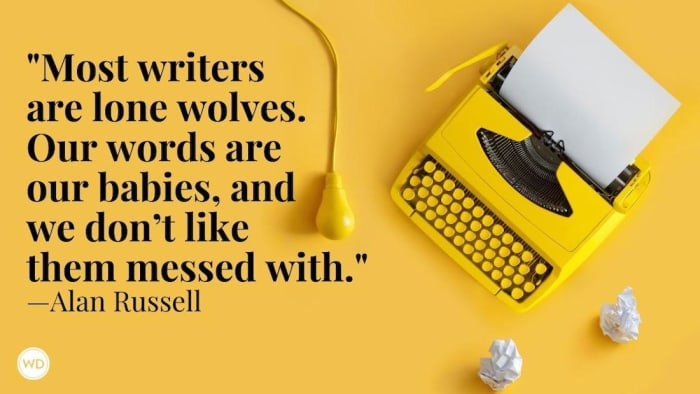Going From Me to We: Collaborating on the Writing of a Novel
Most writers are lone wolves. Our words are our babies, and we don’t like them messed with. Over the years, some of my novels have made the rounds in Hollywood, with a few of them going into pre-production. The worst thing about those experiences was getting feedback from individuals who apparently read my book with cursory interest, and whose comments about possible changes in the book’s adaptation seemed to come out of left field. Hollywood is a collaborative process. When the right people come together, it can lend itself to wonderful magic, but in my own experience it felt as if too many cooks were going to spoil the broth. Temperamentally, I was convinced that I was better suited to flying solo.
(5 Tips for Keeping Your Writing Rolling)
As the sole author of 17 novels, I am fortunate enough to have received both literary and commercial success. Because of that, when I was approached about the idea of collaborating with another author, I initially rejected the idea. To my thinking, I didn’t want to tinker with what was already working. Over time, though, my reluctance gave way to the possibility that, to paraphrase Aristotle, the whole could be greater than the sum of its parts. In the project that was being proposed, a legal thriller concerning human trafficking, it was apparent I could have no better writing partner than Über-lawyer Mike Papantonio.
Mike is one of those larger-than-life characters himself. He has litigated some of the biggest plaintiffs’ cases that have ever been tried. Over a series of conversations, he convinced me of the need to pen this novel. Mike wanted to write the book not because it would be easy, but because he believed it was necessary. For most of the same reasons, he told me he was taking on a case involving human trafficking. Financially, Mike said the case would likely cost him money, but he felt he couldn’t turn a blind eye to this terrible evil in our midst.
Any writer considering collaborating with someone else needs to ask the hard question of what the other individual will bring to the table. In Mike’s case, it was a no-brainer. He had a world of legal experience. Any good writer spends a lot of time doing research; having Mike as a partner meant I didn’t have to navigate the justice system in trying to create accurate and compelling scenarios. Mike was the perfect resource, and provided the kind of legal verisimilitude on the pages that I would never have been able to create on my own.
IndieBound | Bookshop | Amazon
[WD uses affiliate links.]
In considering a collaboration, both individuals need to carve out areas of responsibility. Because of Mike’s legal commitments (during the writing of this novel he was enmeshed in a huge opioid case), I agreed to doing most of the day-to-day writing. When it came to legal scenes, though, Mike always had the final say. That was his domain. Period.
Ideally, any collaboration should involve equal work and effort on the parts of both partners. If this isn’t going to be the case, other arrangements need to be worked out. Because it was clear I would be spending more time working on the book, Mike agreed to compensate me above and beyond the potential sale of the book. As a professional writer, I wanted to make sure my income wouldn’t suffer on a project that wasn’t guaranteed (because I have a wonderful reader base eagerly awaiting each and every book in my bestselling Cop – K/9 Gideon and Sirius series, taking time away from that and other novels was a financial consideration). Ironically, this monetary arrangement was also necessitated by my daughter’s decision to go to law school (with dad footing the bill). It seemed as if the fates had predestined this particular writing collaboration!
In the end, going from “me” to “we” proved to be a very positive experience. A good part of that can be attributed to my partner. Mike was responsive and thoughtful. If you don’t have respect for your writing partner, any collaboration is likely doomed to failure. As might be expected, though, we did experience a few stumbling blocks. Mike wanted one of the main characters to be Jack Reacher-like in physical dimensions. It took convincing on my part to make him comfortable with a character who didn’t stand out in stature. We also agreed to disagree when it came to profanity. Mike didn’t want a book with his name on the cover to be full of “F” words. Although I made the case that that this was needed for the sake of realism, we ended up going Mike’s way. In that, he found himself in good company. Samuel Johnson made many of Mike’s same arguments centuries earlier in talking about profane writers.
For those considering collaboration, go in with your eyes wide open. Try and spell everything out at the onset, and divvy up duties to the satisfaction of both parties. Agree to open lines of communication, with frequent emails and phone calls. When we finished with the writing of Inhuman Trafficking, I had even more respect for Mike than I had at the onset of our collaboration. For me, that meant a successful partnership, and a happy ending both in the book, and in life.




